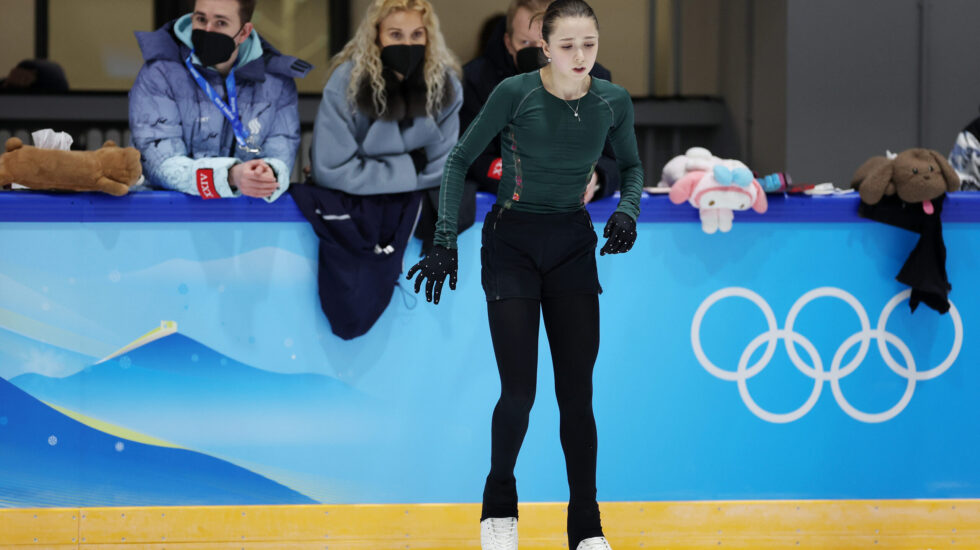Russian figure skater Kamila Valieva will be allowed to compete tomorrow in Beijing despite testing positive for a performance enhancing drug back in December. NPR writes:
The ruling was handed down Monday in Beijing by a panel of three arbitrators appointed by the Court of Arbitration for Sport.
But the International Olympic Committee quickly responded by saying if Valieva wins, she won’t be honored until a full investigation into doping allegations is complete.
National Public Radio
More on the medal ceremony from The New York Times:
The International Olympic Committee took the extraordinary step of serving notice that the athlete, Kamila Valieva, 15, would stay off the podium, as would the other medalists in her events, because of lingering doubts about her eligibility. Valieva became a face of the Games as she helped her Russian team win an earlier competition, and is widely seen as the favorite to win the women’s singles event that begins on Tuesday.
The New York Times
Valieva is considered a heavy favorite to win the women’s singles event. Dan Wetzel of Yahoo Sports provides analysis.
Kamila Valieva is a 15-year-old who lives and trains within the controlled cocoon of the Figure Skating Federation of Russia. As such, most agree, she probably did not independently obtain a drug for angina patients that just happens to improve endurance (and is thus banned by the World Anti-Doping Agency).
So when that substance, trimetazidine, was found in Valieva’s system, it’s assumed that some coach, doctor or whomever in Russia is responsible for the skating sensation being hopped up on heart pills.
This is the same Russia, of course, that ran a sophisticated, state-sponsored, performance-enhancing drug operation at the 2014 Olympics, causing the IOC to ban it from three subsequent Games, including the current one in Beijing. Russia cheated. Russia cheats. Russia runs a system where someone is doping kids.
Yet no one seems to care. Certainly no one is going to stop it from abusing children, let alone the system.
Yahoo Sports
U.S. Olympic officials are disappointed at the decision, especially after star sprinter Sha’Carri Richardson was banned from the 2022 summer games for a positive marijuana test.
The New York Times adds context on Russia’s previous problems with doping.
Groups angry at the ruling to allow her to compete also denounced previous decisions that have allowed Russian athletes to compete at these Games even as their country is banned from them after it was caught orchestrating a state-sponsored doping scheme. As part of its punishment, Russia’s name, flag and anthem are prohibited at the Beijing Games; Russian athletes who have been cleared by their individual sports federations are competing under the banner of the Russian Olympic Committee.
The New York Times



